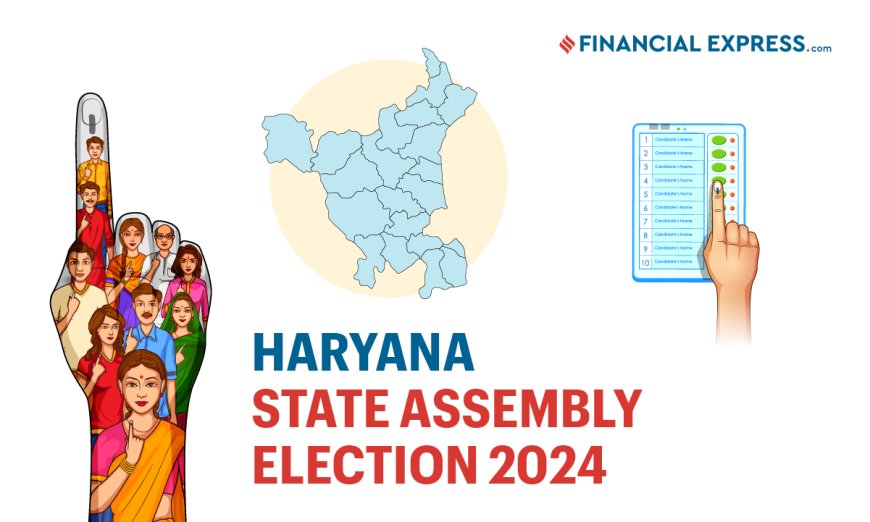The Political Landscape in Haryana: A Libertarian Perspective
This article discusses the political landscape in Haryana during the assembly elections, focusing on the significance of decentralized governance through a libertarian lens. It highlights the advantages of local decision-making, reduced bureaucracy, and enhanced accountability, while also addressing challenges like resource disparities. The article advocates for a governance model that empowers communities to tailor solutions to their unique needs.

As Haryana approaches its assembly elections, the political atmosphere is buzzing with promises and projections from various parties vying for power. With the Bharatiya Janata Party (BJP) seeking a third consecutive term and opposition parties strategizing to unseat them, the implications of these elections extend beyond mere party politics. This article examines the significance of local governance in Haryana and explores how a decentralized approach aligns with libertarian principles, advocating for community-centric solutions tailored to the unique needs of its citizens.
Current Political Context

Haryana has been a focal point of political activity, particularly with the recent assembly elections held in October 2024. The BJP, which has maintained a stronghold in the state, is attempting to solidify its dominance amid rising competition from the National Conference-Congress alliance, which appears poised to challenge their authority. The political discourse during this election cycle has been characterized by promises of development, job creation, and social welfare initiatives. However, as voters evaluate these promises, the effectiveness of these measures often comes under scrutiny.
The Case for Decentralized Governance
Libertarianism advocates for minimal government intervention, emphasizing individual liberty and local governance. This perspective is particularly relevant in Haryana, where the diverse needs of its population—spanning urban and rural areas—necessitate tailored solutions.
-
Local Solutions for Local Problems: Decentralized governance allows local communities to identify their unique challenges and devise solutions that reflect their values and needs. For instance, in rural areas, initiatives focusing on agriculture and local markets might take precedence, while urban regions could prioritize infrastructure and housing. This approach empowers citizens and promotes community involvement in the decision-making process.
-
Reducing Bureaucratic Red Tape: One of the significant drawbacks of centralized governance is the bureaucratic inefficiency that often accompanies it. By adopting a decentralized approach, Haryana can reduce unnecessary red tape, streamline processes, and foster an environment where entrepreneurs and small businesses can thrive without excessive regulations.
-
Promoting Accountability: Local governance structures are more directly accountable to their constituents than distant state authorities. This accountability fosters transparency and encourages elected officials to prioritize the needs of their communities. When local leaders understand the specific needs of their constituents, they are more likely to implement effective policies that resonate with the populace.
-
Encouraging Economic Freedom: Libertarians argue that economic freedom leads to prosperity. A decentralized approach to governance can facilitate economic policies that stimulate growth and innovation. By allowing local governments to set their own tax rates and business regulations, Haryana can create a competitive environment that attracts investment and encourages entrepreneurship.
Challenges and Considerations

While the advantages of a decentralized approach are clear, challenges remain. There are concerns about disparities in resources and capabilities between urban and rural areas, which may lead to unequal development. To address these issues, it is crucial for local governments to collaborate and share best practices while ensuring equitable distribution of resources.
Furthermore, political stability is essential for effective governance. As Haryana navigates a politically charged environment, it is vital that leaders promote dialogue and cooperation among parties to create a more unified approach to governance that respects the principles of decentralization.
Conclusion
As the assembly elections unfold in Haryana, the principles of libertarianism offer valuable insights into creating a more responsive and accountable political system. By embracing decentralized governance, Haryana can empower its communities, promote economic freedom, and ensure that the unique needs of its citizens are met. Ultimately, a political landscape that prioritizes local solutions will not only enhance governance but also foster a stronger, more resilient society.
For further reading on the political landscape in Haryana and the implications of decentralization, consider visiting The Hindu or The Times of India.
FAQs
1. What is decentralized governance?
Decentralized governance refers to the distribution of authority and responsibility away from a central authority to local or regional governments. This approach empowers communities to make decisions tailored to their specific needs, enhancing local participation and accountability.
2. How does decentralized governance align with libertarian principles?
Libertarianism advocates for minimal government intervention and maximum individual freedom. Decentralized governance aligns with these principles by allowing local governments to operate independently, reducing bureaucratic interference, and enabling communities to craft their own solutions to local issues.
3. What are the benefits of decentralized governance in Haryana?
- Local Problem-Solving: Communities can address their unique challenges effectively.
- Reduced Bureaucracy: Streamlined processes can foster entrepreneurship and innovation.
- Accountability: Local officials are more directly accountable to their constituents.
- Economic Freedom: Encourages local economic policies that stimulate growth.
4. Are there challenges associated with decentralized governance?
Yes, challenges include potential disparities in resources between urban and rural areas, which could lead to unequal development. Moreover, political stability is crucial to ensure effective governance and collaboration among local leaders.
5. How can the principles of decentralization be applied in the upcoming Haryana elections?
Candidates can focus on promoting local governance initiatives, engaging with community members to understand their needs, and advocating for policies that reduce bureaucratic barriers. This approach can create a more participatory political environment.
What's Your Reaction?




















































